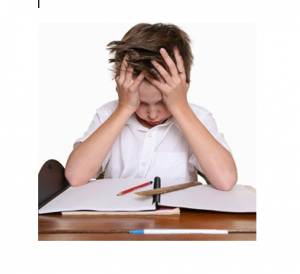
How Parents Struggle when their Children cannot Read.
Joshua can’t read. He is 7 and a chess champion, but he is also dyslexic. Louise, Joshua’s Mother, thinks she has failed because Joshua can’t read, and isn’t even willing to try. However, Joshua is intelligent and Louise knows that he needs to learn to read, so insists that he practise every evening. Sadly, this is when the fights begin.
Joshua Only Has to Read!
Initially, Joshua mislays his book. Then he begins to fidget, loses the page, and is sure that ‘no one else has to read this boring book anyway’. Louise perseveres, but after reading two more sentences Joshua nudges the book on to the floor. Staying calm, Louise picks up his book and finds the page, by which time Joshua has snatched his sister’s doll, and made her cry.
Louise reacts calmly, even though she is becoming angry. Joshua reads another sentence, but then asks Louise about his packed lunch. Louise ignores this attempt to distract her. Joshua manages to read one more line, and then stops to call his sister ‘stupid’. Louise says he is unkind and he dissolves into tears, muttering that he hates her. Louise snaps.
Why is it a Battle to get Joshua to Read?
All Louise’s good intentions have been drowned out by feelings of irritation and failure. She slams shut the book, tells Joshua that TV is banned for a week and sends him to his room. Joshua has won the ‘reading battle’! He has lost his TV, but he has freed himself from the anxiety he feels around reading. His self-worth is intact.
For Joshua’s development as a confident young adult, this is so important. However, Louise now feels that she is a useless Mother, and has an overwhelming desire to sob, and blames herself. She has done nothing to help her failing son, and he ‘hates’ her in that moment.
How Can I Help You Joshua?
Three weeks later, I met Joshua, when Louise brought him to me for help. I began by telling Joshua that I couldn’t read until the age of 14 years of age. This is an essential start for me. Children quickly realise that I am not going to stand in judgement on them, because I couldn’t read either!
Why Can’t Joshua Read?
I carried out five simple tests with Joshua’s agreement, and established that he lacked the basic skills required for reading. This conclusion is similar to the general findings of Educational Psychologists, who frequently test struggling readers.
Joshua demonstrated to me that he was particularly knowledgeable about his language. Louise confirmed that during many years of ‘help’ from SEN teachers and tutors, Joshua learnt his letter-sounds, reading rules and mnemonics. In fact, he had become very good at ‘intellectualising’ reading, demonstrating that for some children, this is not an effective way for the brain to learn to read!
How did I overcome Joshua’s Inability to Read?
I worked with Joshua for 10 one-hour sessions, ignored spelling rules and didn’t ask him to memorise anything. I merely worked on his reading skills of blending, segmenting and auditory processing. These were the essential skills that were not in place, when I tested Joshua.
During our time together, I focused on these skills. We practised them constantly, although Joshua would not have been aware of this. We also worked on improving his knowledge of the sounds in his language, and the various ways of writing them. This was far more valuable than tormenting him with a reading book, which he clearly couldn’t read anyway!
How could 10 hours Reading Therapy help Joshua to Read?
From a teaching perspective, the great thing about skills is that they can be taught, learnt and practised. I knew that Joshua lacked basic reading skills, so I made sure that he practised these skills, by using them over and over again. That is how I work: I provide the essential skills practice that is required by struggling readers, to enable them to read effectively. You could say that I give children a ‘tool kit’ with which to attack new or unfamiliar words. After just 10 hours of practising these skills, Joshua was more than willing to read with Louise, or on his own and I wasn’t needed any more.
How do I know that what I do Helps Children learn to Read?
I am always confident that I am doing the right thing, when I work with poor readers, because I improve their ability to read in just a few hours. I offer a fun and creative course in which children of all ages seem willing to participate. When I see small children dance up my path, after a day at school, I feel confident that what I do is ease, and truly valuable.